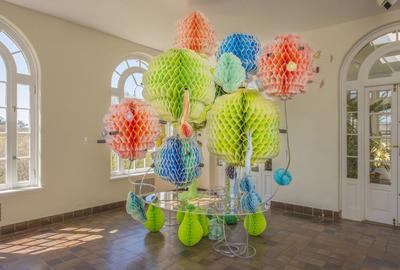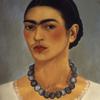Dr. Robert Mintz Appointed Deputy Director, Art & Programs, at the Asian Art Museum of San Francisco
- SAN FRANCISCO, California
- /
- May 18, 2016
The Asian Art Museum announced today the appointment of Dr. Robert Mintz as the museum’s new Deputy Director, Art & Programs, a key leadership position responsible for managing the curatorial, conservation and museum services departments — including registration, preparation, and exhibition design.
Reporting to the museum director, Jay Xu, Mintz will also provide strategic direction on education, interpretation and public programs, and will oversee the growth and development of the museum’s world-class collections, building on the museum’s leadership in the San Francisco cultural community by working closely with dedicated staff, board, patrons, and volunteers to ensure audiences on-site and online are immersed in rewarding art experiences. He begins his tenure at the Asian Art Museum on July 5, 2016, at the mid-point of the museum’s 50th anniversary celebrations.
A scholar of Japanese art with deep interests in cross-cultural artistic traditions, Mintz has been serving as Chief Curator and Curator of Asian Art at the Walters Art Museum in Baltimore, Maryland since 2012. Mintz has worked at the Walters since 2006, curating a range of topical exhibitions and installations exploring points of intersection between Eastern and Western art, 18th-century Japanese painting, Japanese decorative arts, modern woodblock prints, and contemporary art from India, Thailand, Japan and China — all while maintaining a robust agenda of teaching and publishing.
"I am excited to join such a dynamic organization, working with Jay Xu in supporting the museum’s vision of connecting visitors to the rich history and living traditions of Asian arts and cultures,” says Mintz. “The museum is an exceptional institution with an extraordinary collection and a reputation for sharing important works of art through innovative, memorable exhibitions. I look forward to working with the creative team that will shape the museum's programs well into the future."
“Rob brings an impressive record of accomplishments — including exhibition development, research and scholarship, and strong managerial and leadership experience — to the Asian Art Museum,” says Xu. “We deeply appreciate his passion for art and teaching, and welcome his creative spark to help guide us in presenting programs that stimulate discovery, discussion and excitement and keep the museum’s next 50 years on the right path.”
Mintz has traveled widely through Asia, exploring the shared artistic connections across the history and geography of the continent, from millennia past to today. Prior to joining the Walters, Mintz held positions as visiting professor of art history at Central Washington University, gallery director and lecturer in Asian art history at Seattle University and visiting professor of Japanese art history at the University of Washington.
His classes have touched on an array of subjects and media, including Japanese paintings and prints, Asian Buddhist arts, contemporary East Asian performance art and Chinese film. He currently teaches courses in the history of Chinese and Japanese art on an adjunct basis for Towson University and for the Johns Hopkins University in Baltimore, and lectures regularly for the Smithsonian Associates in Washington, D.C.
Writing frequently on works within the Walters’ Asian collections for journals and general audience publications, Mintz has explored topics ranging from Japanese medieval narrative paintings and Chinese legends to contemporary institutional architecture and the post-pop avant-garde in Asia.
His most recent book-length publications include Japanese Ceramics for the 21st Century (2014), which accompanied the exhibition Designed for Flowers: Contemporary Japanese Ceramics; and Japanese Cloisonné Enamels (2010), which accompanied an exhibition at the Walters of the same name. His current research focuses on issues arising from the interrelationship of Chinese and Japanese works of art with an emphasis on products of the 18th and 19th centuries.




10270x400_c.jpg)








100x100_c.jpg)






![Peter Paul Rubens (Flemish, 1577–1640), After Titian (Tiziano Vecelli) (Italian [Venetian], c. 1488–1576), Rape of Europa, 1628–29. Oil on canvas, 71 7/8 x 79 3/8 in. Peter Paul Rubens (Flemish, 1577–1640), After Titian (Tiziano Vecelli) (Italian [Venetian], c. 1488–1576), Rape of Europa, 1628–29. Oil on canvas, 71 7/8 x 79 3/8 in.](/images/c/e2/2e/Jan20_Rape_of_Europa100x100_c.jpg)
